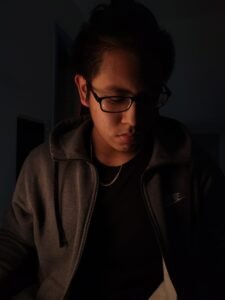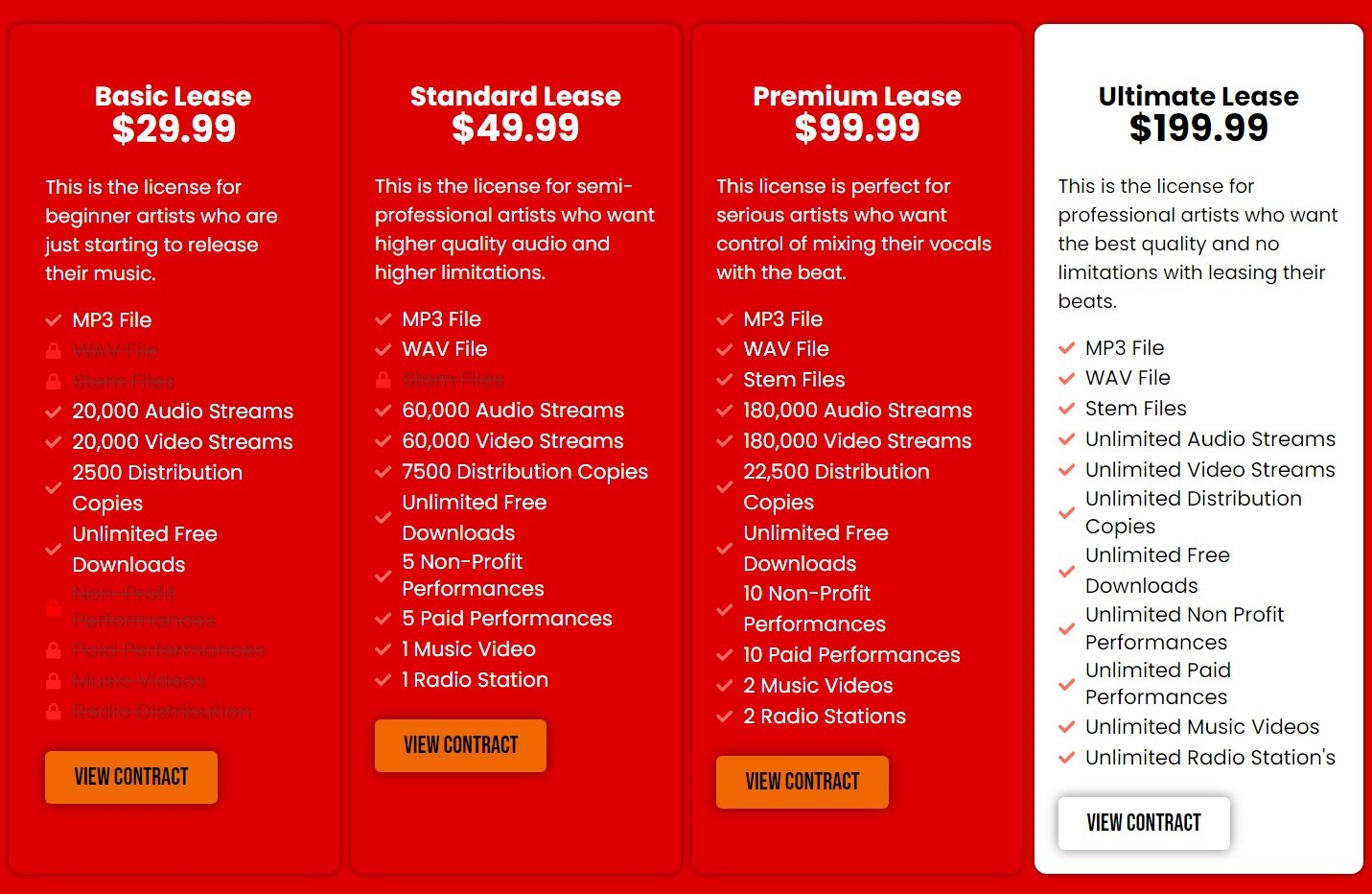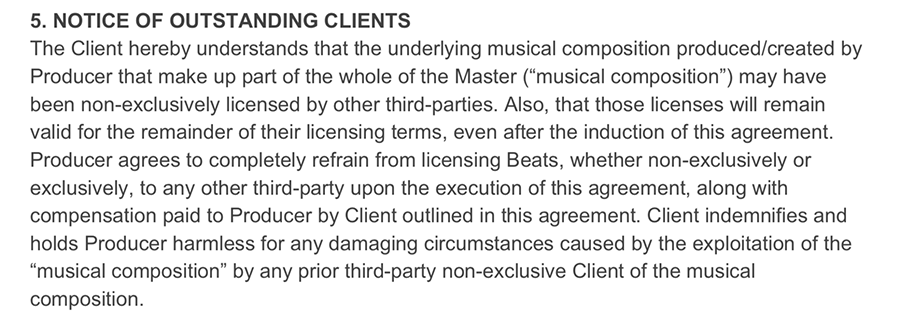Beat Licensing 101: Everything You Need To Know About Leasing Beats


King Of Orange Beats
Music Producer
Beat Licensing is a very important topic to discuss as it is the process behind many agreements made between the producer and the artist. Licensing beats is nothing new as that is how agreements are made, but it’s important to know what you are getting out of these licenses and decide which license is right for you.
In this guide, you will learn the fundamentals of beat licensing and the differences between these licenses. This will help avoid any confusion that arise from purchasing licenses and get disappointed from the limitations that the license comes with.
What Is Beat Licensing?
Beat Licensing is the exchange of money for the rights to use a beat to create a song out of it in the form of a license. This license is an agreement between the producer and the artist and serves as legal proof that the producer gave permission to the artist to use the beat. The license comes with granted rights which tells what the artist is allowed to do and what limitations are set.
When an artist asks for a free beat to a producer and the producer provides the beat to the artist, this does not mean that the artist has the rights to use the beat and are granted a license agreement. Free beats are pretty much useless since they do not serve as legal proof that the producer permitted the artist to use it. This is why a license agreement is important.
There are only two types of licenses: Non-Exclusive and Exclusive.
Non-Exclusive Beat Licensing
Non-exclusive licensing is a more common way to license (also called leasing) the rights to use a beat. The pricing for these licenses can range from $30-300 in which the higher the price of a license, the less limitations you have when uploading your music. More importantly, you are allowed to upload your music to many streaming platforms and make money from it.
Non-exclusive licenses allow the artist to use the beat to create their song, upload it, and monetize it. Additionally, a non-exclusive license also includes the number of sales, plays, streams or views that you are allowed to have. For example, a license may allow a maximum of 25,000 streams on Spotify and/or 50,000 views on YouTube.
A non-exclusive license also has an expiration date, meaning that the license is valid for a few years. This can range from 1-10 years. After the license meets the expiration date, the buyer has to renew the license, meaning they have to purchase a new one. The license also has to be renewed if the buyer reaches the maximum number of streams and/or plays, regardless of if the license didn’t reach the expiration date.
Non-exclusive licenses can be licensed to an unlimited number of artists, meaning that many artists are allowed to use the same beat for their songs and receive the same license. Choosing which type of license depends on what status the artist is currently in. A beginner artist is better off with a non-exclusive license while a signed artist or an artist about to blow up is better off with an exclusive license.
The Different Types of Non-Exclusive Licenses
There are 4 different non-exclusive licensing options. I offer a Basic, Standard, Premium, and Ultimate Lease. Each lease (also called license) has different user-rights, and as the price gets higher, you get more of these rights. In addition, you are getting higher quality audio files.

My Pricing Tables
I would always recommend the Premium Lease because you get the best audio quality, tracked out files of the beat and more user-rights.
Artists who believe that these rights are not enough for their song benefit more from the Ultimate Lease, and if the artist is guaranteed to blow up, an exclusive lease is even better.
Exclusive Beat Licensing
Exclusive Licensing is similar to Non-Exclusive Licensing except that when you own exclusive rights to a beat, there are no limitations on user-rights, meaning that you are benefitting everything out of your song.
There is no limit on the number of streams, plays, sales or views and there is no expiration date. The song may also be used on different projects, such as singles, albums, music videos, etc. This user-right is limited to non-exclusive licenses.
Whenever an artist buys an exclusive license to a beat, that artist is the last person to purchase it and the beat is no longer sold to anyone else. If there are artists that purchased a non-exclusive license to the beat before it was sold exclusively, they still own the rights to use that beat for the remainder of their license expiration date.
In every exclusive license, there should be a section with a “notice of outstanding clients” included. This section protects the previous licensees from getting a strike by the exclusive buyer.

Summary
These are the main differences between non-exclusive licenses and exclusive licenses. There are so many things that I haven’t covered that are also important to know and can even confuse many artists such as Royalties and Copyright, so I will continue to write all about these topics in future articles.
To decide what license is best for your situation, here is an easy guide:
-
- If your song is going to reach a ton of people but don’t want other artists to use the same beat as yours, go with an Exclusive Lease.
-
- If your song is going to reach a ton of people and you don’t mind having other artists using the same beat as yours, go with an Unlimited Non-Exclusive Lease.
-
- If your song is not going to reach a ton of people, go with a Standard Lease.

King Of Orange Beats
Music Producer
